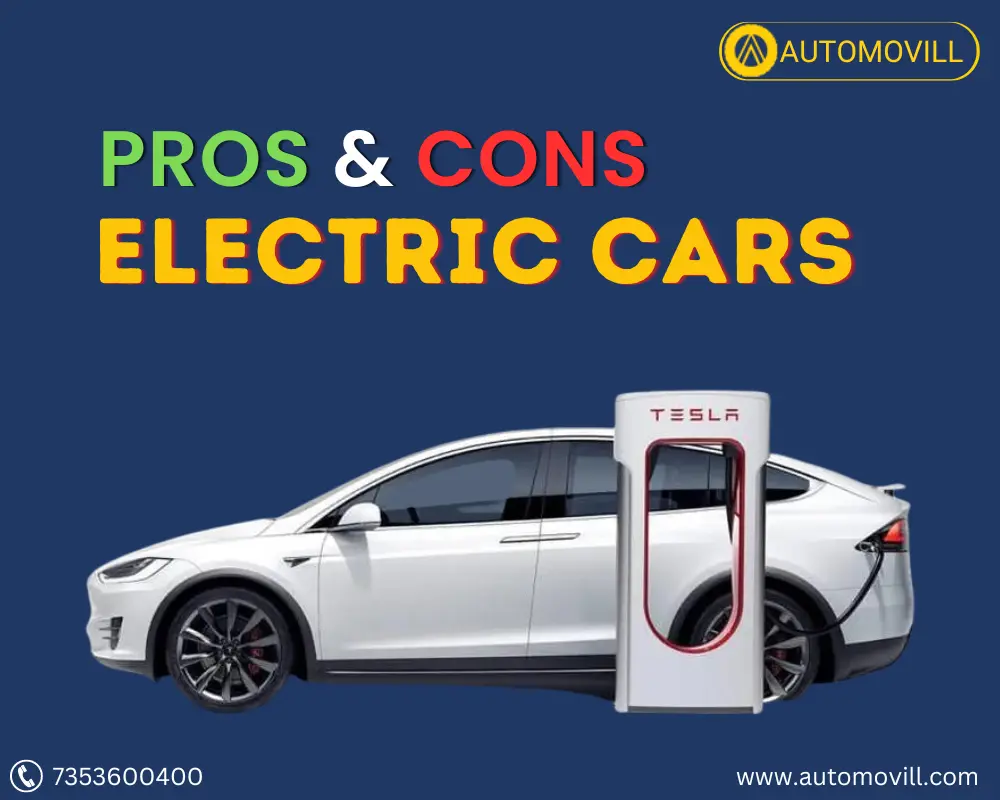
Electric vehicles (EVs) have been gaining popularity in recent years as an alternative to traditional gasoline-powered vehicles. While there are many advantages to driving an EV, there are also some drawbacks to consider. In this essay, we will explore the pros and cons of electric vehicles.
Pros of Electric Cars
- Environmental Benefits: Perhaps the biggest advantage of EVs is their environmental impact. They produce no emissions from the tailpipe, which means they do not contribute to air pollution or greenhouse gas emissions. This makes them a cleaner option for transportation, especially when powered by renewable energy sources like wind or solar.
- Energy efficiency: EVs are more energy-efficient than gasoline vehicles. Electric motors convert more of the energy stored in the battery into movement, while gasoline engines waste a lot of energy as heat. This means that EVs require less energy to travel the same distance, resulting in lower operating costs and reduced dependence on fossil fuels.
- Lower maintenance costs: EVs have fewer moving parts than gasoline vehicles, which means that they require less maintenance and have lower repair costs over time. For example, they don’t need oil changes or air filter replacements.
- Quiet and smooth: Electric motors produce less noise and vibration than gasoline engines, which can result in a more comfortable and peaceful driving experience.
- Government incentives: Many governments around the world offer incentives to encourage people to buy EVs. These can include tax credits, rebates, or other financial incentives that can make EVs more affordable.
Cons of Electric Cars:
- Limited Range: One of the biggest drawbacks of EVs is their limited driving range compared to gasoline vehicles. Most EVs can only travel 100-300 miles on a single charge, depending on the model and driving conditions. This can make them less suitable for long-distance travel or road trips.
- Charging Time: EVs take longer to charge than refueling gasoline vehicles. While this is improving, it can still be a limitation for some drivers. Even with fast chargers, it can take 30 minutes or more to charge an EV to 80% capacity.
- Higher Upfront Cost: EVs can be more expensive than gasoline vehicles, although this is changing as battery technology improves and economies of scale are achieved. However, the higher upfront cost can still be a barrier for some people.
- Battery Disposal: EV batteries contain hazardous materials that require special handling for disposal or recycling. While this is becoming easier as more recycling facilities are built, it is still a concern for some people.
- Charging Infrastructure: Another challenge with EVs is the availability of charging infrastructure. While there are more charging stations being built every day, they are still less common than gas stations in many areas. This can make it difficult to take long trips in an EV without careful planning.
In conclusion, there are many pros and cons to driving an electric vehicle. While the environmental benefits and energy efficiency of EVs are clear advantages, the limited driving range, longer charging time, and higher upfront cost can be drawbacks.
However, as technology improves and more charging infrastructure is built, these limitations are becoming less significant. As EVs become more affordable and accessible, they are likely to become an even more popular option for transportation in the future.
